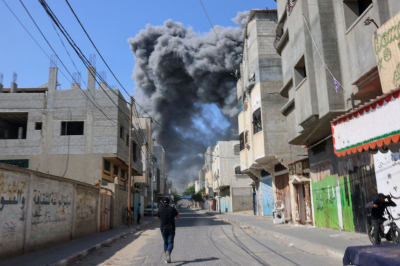Hamas must release all hostages or Israel has to escalate war in Rafah

As the world watches, the Middle East finds itself at another critical juncture. The question on everyone’s minds is whether the Hamas terrorist leadership will accept the latest hostage deal proposed by the U.S. Biden administration and Egypt. With the Israeli cabinet also needing to approve the deal, the stakes are high.
The proposed deal, while details remain scant in public discourse, is a litmus test for the intentions and future actions of all parties involved. Should Hamas reject the proposal, it suggests a readiness to continue hostilities, likely leading to a dire situation, with a likely imminent expansion into Rafah. This would undoubtedly result in further violence and suffering. On the other hand, an acceptance could herald the end of hostilities, at least temporarily.
This scenario raises several critical questions about the motivations and strategies of both Hamas and the Israeli government. For Hamas, the decision to accept or reject the hostage deal will significantly reflect on their political and military calculations. Historically, Hamas, a designated terrorist organization, has used hostage situations as leverage in negotiations, aiming to extract concessions from the Israeli government. The group's decision will reveal much about their current position and future intentions in the geopolitical chess game of the region.
On the Israeli side, the cabinet's decision will similarly indicate their current strategic priorities and their willingness to compromise with a terrorist enemy. The Israeli government faces internal pressures from various political and public sectors, each with differing views on the best approach to deal with Hamas, but with an overwhelming majority advocating continuation of the war against Hamas. The balance between ensuring national security and freeing hostages is delicate and often contentious within Israeli political circles.
Furthermore, the role of the U.S. Biden administration and Egypt in brokering this deal is crucial. Their involvement underscores the international community's vested interest in stabilizing the region, but it also highlights the complexities of Middle Eastern geopolitics where U.S. and Egyptian interests often do not align with those of Israel and the Palestinians. The effectiveness of U.S. foreign policy in this region, particularly in managing the delicate balance between different stakeholders, is on trial.
Should the deal fall through, the international community, particularly those directly involved in the negotiations, must remain committed to supporting Israel, one true ally of the United States in the Middle East. The decisions made in the coming days will likely have profound implications not only for the current conflict but also for stability in the Middle East and the world.
As developments unfold, it is crucial for all observers to stay informed and engaged. The decisions made in the coming days will likely have profound implications not only for the current conflict but also for the broader future of peace and stability in the Middle East.
David Rubin, former Mayor of Shiloh, Israel, is a recognized authority on Israeli affairs and a prominent commentator on Middle Eastern politics. His book, Confronting Radicals: What America Can Learn from Israel, has recently been adapted into a film. Rubin founded the Shiloh Israel Children’s Fund after surviving a terror attack with his young son. His website is www.IsraelChildren.org.




























